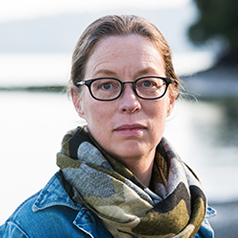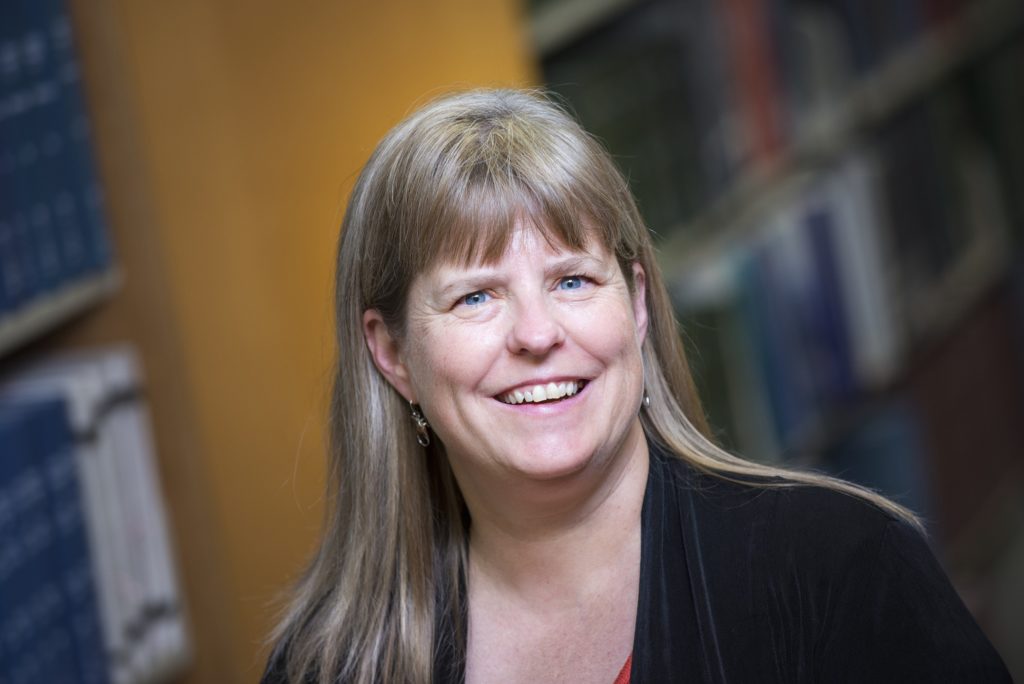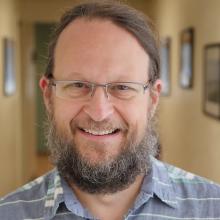Bringing Citizen Science to the Coastal Classroom
Rigorous coastal citizen science collects data on all sorts of events, phenomena and species of importance, from invasive green crabs to mass mortalities of seabirds to the appearance of jellyfish strandings. Citizen science is actionable science – science that makes a difference in natural resource management, in community decision-making, and in the lives of real people. This work is a perfect way for teachers seeking to give their students an authentic science experience.
Teachers Invited!
Join the Coastal Almanac for a weekend course introducing teachers to a range of coastal citizen science projects that are actively gathering data. Teachers are invited to work side-by-side with project managers and scientists to co-create the integration of citizen science into the classroom.
Who: K-12 instructors from communities along the West Coast and coastal Alaska
When: Saturday September 25th, 2021 – Sunday September 26th, 2021 (option to split time over 2 days)
Session 1: Sept 25th 9am-12pm AK/10am-1pm PT (all attendees)
Session 2: breakout sessions, choose one
- Sept 25th 1pm-3pm AK/2pm-4pm PT
- Sept 26th 9am-11am AK/10am-12pm PT
*note: you do NOT need to attend both breakout sessions to receive full credit
Where: Zoom meeting (link provided upon registration)
How to sign up
The priority registration deadline has passed. Registration will continue through September 24th.
Please let us know that you would like to attend by filling out our Registration Form.
Contact COASST Science Coordinator Jackie Lindsey at coasst@uw.edu with any questions.
Workshop Topics
Session 1 (3 hours)
Hear from citizen science project managers about their projects – what they do and what is needed to participate. Assess for yourself whether a project is right for your classroom.
Session 2 (2 hours, either day)
Dive deep with workshop scientists and project managers on how to effectively bring coastal citizen science into the classroom – how can we collectively satisfy the needs of teachers and the needs of the projects?
Workshop Goals
- Provide an opportunity for educators to learn about local citizen science projects that are taking place in the communities they serve. (Session 1)
- Connect educators to the people who study and manage citizen science programs, so that they can reach out for further involvement. (Session 1)
- Co-create resources and document strategies needed to effectively move citizen science into the classroom and move students towards participation in actionable science. (Session 2).
Instructors and Program Coordinators
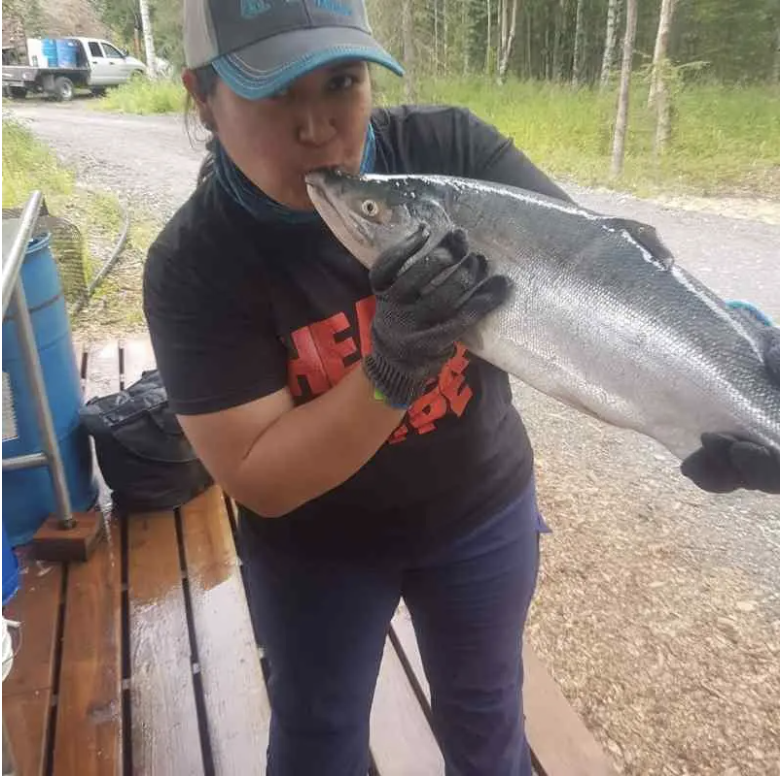
Jen Christopherson

Jen Christopherson
Links and Resources
One-page summaries of each citizen science program:
-
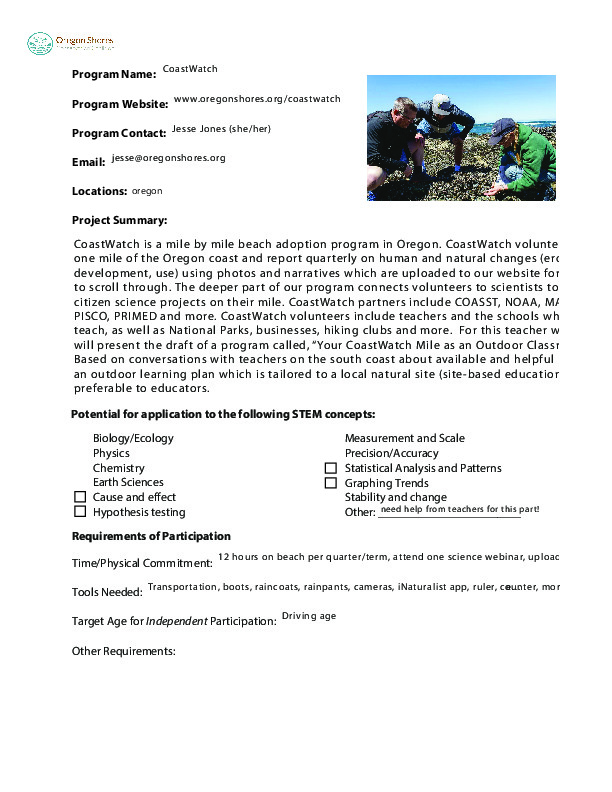
CoastWatch – September 2021 -
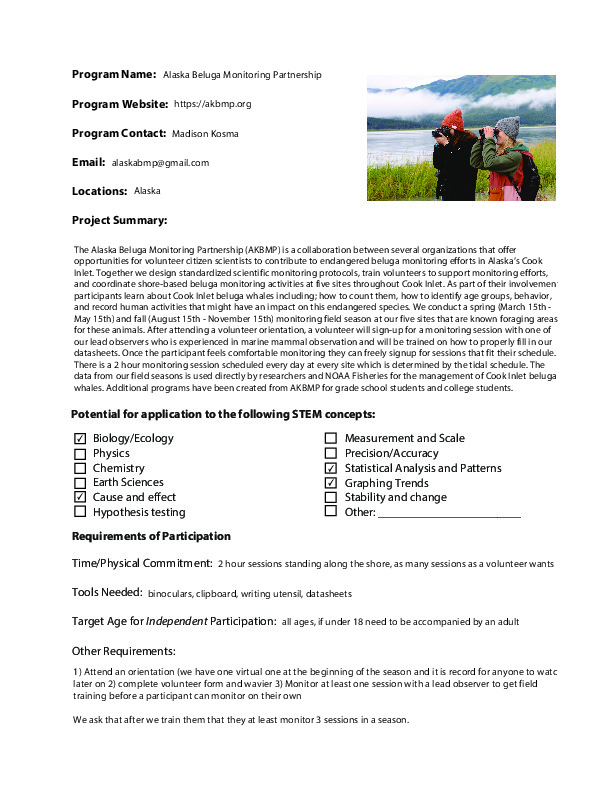
Alaska Beluga Monitoring Partnership – September 2021 -
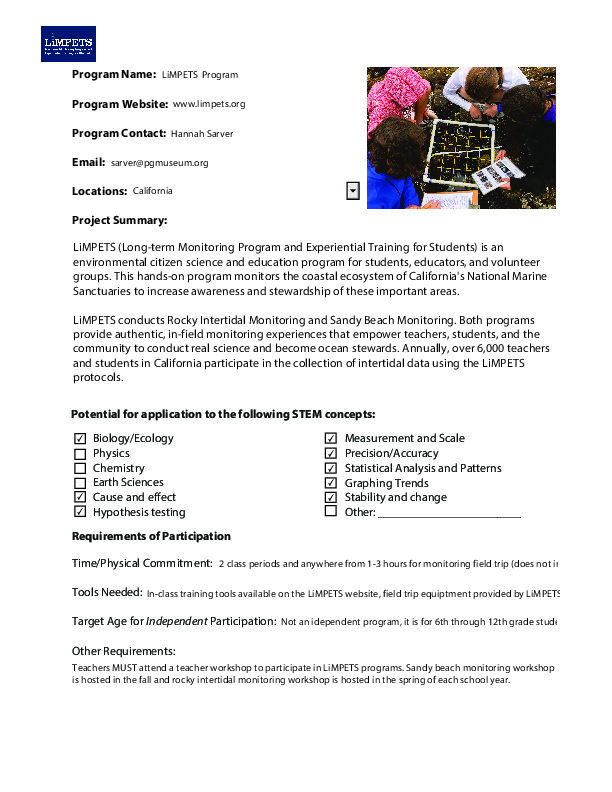
LiMPETS – September 2021 -
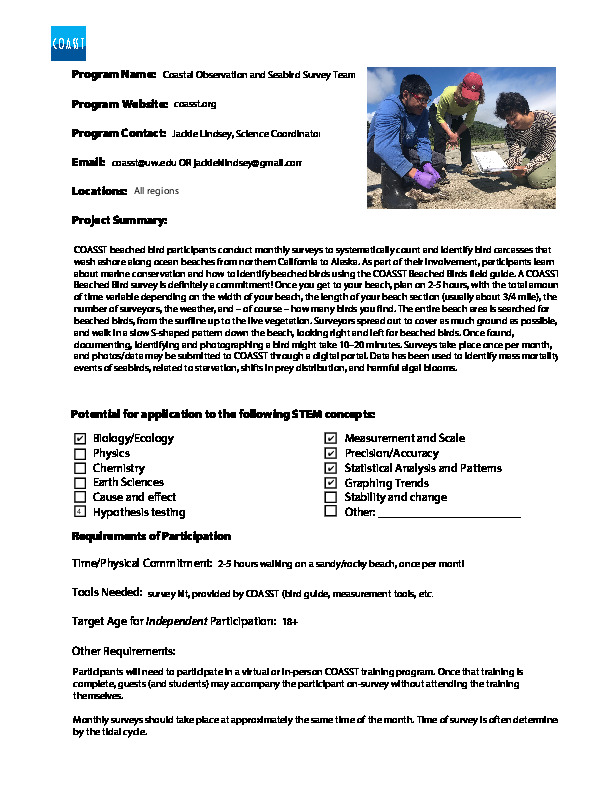
COASST – September 2021 -
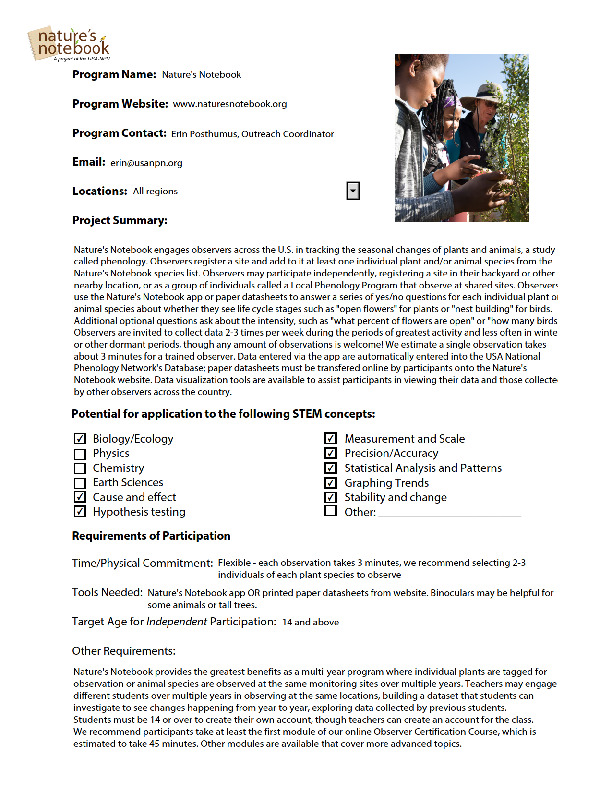
Nature’s Notebook – September 2021
External links:
- Homework Assignment – the jamboard
- Every Kid Outdoors Transportation Grant
Agenda
Note: all times below are listed in PDT. Alaska attendees – subtract one hour!
| September 25th 10:00 AM-1:00 PM (Pacific) | Session 1 |
| 10:00 – 10:30 | Welcome from Coastal Almanac team |
| Goal setting | |
| Introductions by all attendees and program coordinators | |
| 10:30 – 11:15 | The Science of Citizen Science – what makes a great citizen science project? (Dr. Julia Parrish, presenter) |
| 11:15 – 11:50 | Presentations by ‘global’ citizen science programs – description and requirements to participate |
| Q&A | |
| 11:50-12:05 | Lightning round presentations by ‘local’ citizen science programs – description and requirements to participate |
| Q&A | |
| 12:05 – 12:15 | Break |
| 12:15 – 12:45 | Matching Citizen Science to Classroom Goals – how do programs apply to the classroom? (Dr. Selina Heppell, presenter) |
| 12:45 – 12:55 | Applying for course credit |
| 12:55 – 13:00 | Session 2 plans |
| 13:00 – 14:00 | Lingering questions and logistics/troubleshooting before Session 2 |
| Lunch break for Session 2a attendees | |
| September 25th 2:00 PM – 4:00 PM (Pacific) | Session 2a: COASST, Nature’s Notebook, CoastWatch |
| 14:00 – 14:10 | Session 2 welcome back and goals |
| 14:10 – 14:45 | Continued Q&A – how to participate in citizen science |
| 14:45 – 15:15 | Program-specific breakout rooms: co-collaboration time |
| 15:15 – 15:45 | Report back to larger group |
| 15:45 – 16:00 | Wrap up, next steps to put a citizen science program in the classroom |
| Evaluation | |
| September 26th 10:00 AM-12:00 PM (Pacific) | Session 2b: COASST, LiMPETS, AK Beluga Monitoring Partnership |
| 10:00 – 10:10 | Session 2 welcome back and goals |
| 10:10 – 10:45 | Continued Q&A – how to participate in citizen science |
| 10:45 – 11:15 | Program-specific breakout rooms: co-collaboration time |
| 11:15 – 11:45 | Report back to larger group |
| 11:45 – 12:00 | Wrap up, next steps to put a citizen science program in the classroom |
| Evaluation |
Sponsors and Participating Organizations
We would like to thank NSF for sponsoring this work, along with all of the organizations and experts who contributed time and expertise to this workshop.

